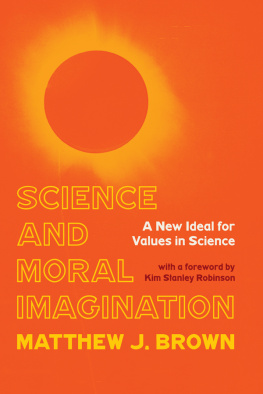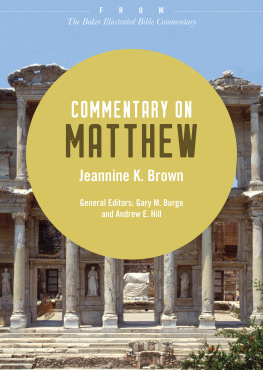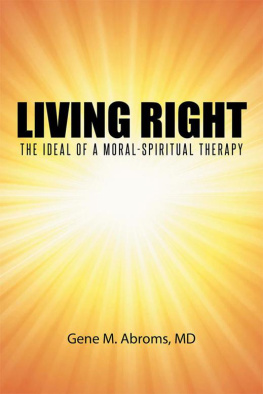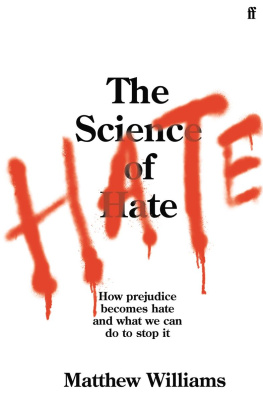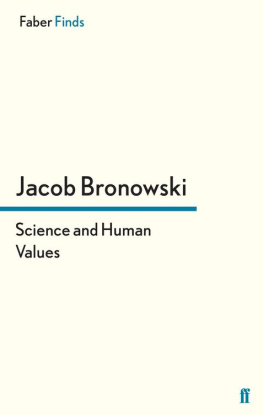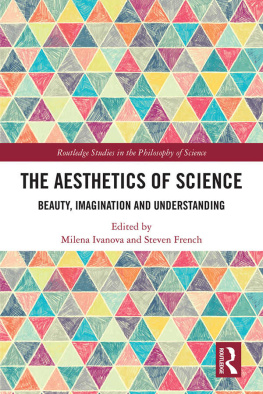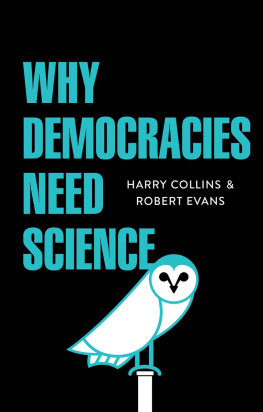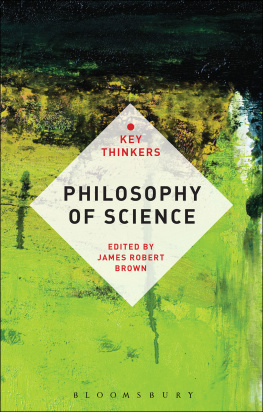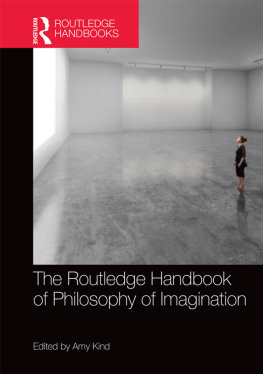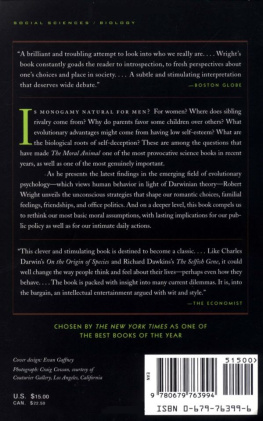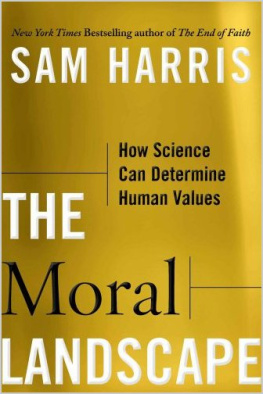Matthew J. Brown - Science and moral imagination a new ideal for values in science
Here you can read online Matthew J. Brown - Science and moral imagination a new ideal for values in science full text of the book (entire story) in english for free. Download pdf and epub, get meaning, cover and reviews about this ebook. year: 2020, publisher: University of Pittsburgh Press, genre: Politics. Description of the work, (preface) as well as reviews are available. Best literature library LitArk.com created for fans of good reading and offers a wide selection of genres:
Romance novel
Science fiction
Adventure
Detective
Science
History
Home and family
Prose
Art
Politics
Computer
Non-fiction
Religion
Business
Children
Humor
Choose a favorite category and find really read worthwhile books. Enjoy immersion in the world of imagination, feel the emotions of the characters or learn something new for yourself, make an fascinating discovery.
- Book:Science and moral imagination a new ideal for values in science
- Author:
- Publisher:University of Pittsburgh Press
- Genre:
- Year:2020
- Rating:4 / 5
- Favourites:Add to favourites
- Your mark:
- 80
- 1
- 2
- 3
- 4
- 5
Science and moral imagination a new ideal for values in science: summary, description and annotation
We offer to read an annotation, description, summary or preface (depends on what the author of the book "Science and moral imagination a new ideal for values in science" wrote himself). If you haven't found the necessary information about the book — write in the comments, we will try to find it.
Science and moral imagination a new ideal for values in science — read online for free the complete book (whole text) full work
Below is the text of the book, divided by pages. System saving the place of the last page read, allows you to conveniently read the book "Science and moral imagination a new ideal for values in science" online for free, without having to search again every time where you left off. Put a bookmark, and you can go to the page where you finished reading at any time.
Font size:
Interval:
Bookmark:

SCIENCE, VALUES, AND THE PUBLIC
Heather E. Douglas, Editor
Useful supplemental materials related to the book can be found at https://valuesinscience.com
Some of the material in this book is based upon work supported by the National Science Foundation under Grant No. 1338735.
Published by the University of Pittsburgh Press, Pittsburgh, Pa., 15260
Copyright 2020, University of Pittsburgh Press
All rights reserved
Manufactured in the United States of America
Printed on acid-free paper
10 9 8 7 6 5 4 3 2 1
Cataloging-in-Publication data is available from the Library of Congress
ISBN 13: 978-08228-4626-7
ISBN 10: 0-8229-4626-2
Cover design by Alex Wolfe
ISBN-13: 978-0-8229-8767-3 (electronic)
DEDICATED TO THE MEMORY OF
JON JOLYON JOHNSTON
MICHAEL JOSEPH BROWN
SUSAN LYNN MITCHELL BROWN
Let me be a seeker of knowledge,
Let me travel uncharted paths,
And let me use my creativity
To make the World a better place
In which to live.
The Odyssey of the Mind Pledge
What after all, has maintained the human race on this old globe despite all the calamities of nature and all the tragic failings of mankind, if not faith in new possibilities, and courage to advocate them.
Jane Addams, Peace and Bread in Time of War, 149.
Because were going to have to imagine our way out of this one.
Kim Stanley Robinson, Green Earth, 1044.
Some problems never go away. How we act on what we know is surely a problem that predates Homo sapiens, and over our long history one aspect of that problem has evolved into the vexed relationship between science and values, which has puzzled philosophers from the ancient Greeks on. In various manifestations, such as the is/ought problem or the fact/value distinction, it has been discussed by many writers, and has remained one of the most important philosophical problems we have. Indeed now that our powers of action in the world have grown so much, by way of the application of science as a set of tools, this area of thought is more important than ever.
But over the course of the twentieth century, philosophy became theory. This shift began with thinkers like Nietszche, Wittgenstein, and Gdel bringing into question the bases of philosophy itself, and it gained momentum in the second half of the century when an immense intellectual pressure was exerted on all received ways of thought, including language and cognition. Entire academic disciplines dissolved at their foundation under this intense interrogation of first principles, and fields like anthropology and history have had to struggle ever since to understand what they are and where their validity lies, if anywhere.
For the field called philosophy of science, the shift to theory manifested as what we now call science studies. What before had been regarded as a nearlyindependent history of ideas, based largely on mathematics and therefore almost metaphysical in nature, became radically historicized and situated in the particulars of the social contexts in which science arose and evolved. Science was now understood as a particular kind of praxis, meaning a political-social-economical-instrumental intervention into relations of power among human groups, and between humanity and the rest of Earths biosphere. As such, science studies blossomed in a period of detailed phenomenological inquiry into a fractal array of historical circumstances that had never been properly investigated before. In this garden of forking paths, philosophy of science became much more history of science; using one of the last great models out of philosophy of science, Thomas Kuhns paradigms, we might say that the old paradigm of science itself broke apart under the impact of theorys radical questioning of language, history, power, and cognition.
One result of this paradigm breakdown was that academic science studies became more and more technical and ingrown, such that only other practitioners of science studies could understand the context and import of new work. The academic field plunged down rabbit holes; it got lost in the weeds, such that its use value to working scientists and the general public, or lets just say everyone interested in science, which really ought to be everyone alive (theres that word ought again, but lets keep it), can no longer get much use out of the discipline. And yet the big problems of science and society remain, and are even growing more pressing as we move into an era of unprecedented scientific-technical powers and unprecedented ecological damage. More than ever we need a solid sense, if we can make one, of the relationship between facts and values, between our actions and our hopes. Maybe you could say we are between paradigms and need a new one, if this now old-fashioned formulation has any residual power to clarify things.
This is the situation I think Matthew Brown is taking on in his very interesting book. His is an attempt at paradigm construction by way of clarification, in a moment when clarity is both difficult and crucial. To achieve that clarity, he uses aspects of the scientific method itself, which in a philosophical discussion of science is recursive but also effective and pleasing. Among other aspects of the scientific method deployed here, we see a kind of structuralist description of the problem, de-stranding conglomerate realities in hopes of finding causes and effects; also reductionism, where the problem is contained to the point where it can be understood and discussedeven Occams razor, by which I mean that Brown has decided to trust the language to convey commonly agreed-upon meanings.
This is crucial, because after the stupendous and no doubt useful work oflinguistic deconstructionism, which turned the lens of philosophical inquiry onto language and cognition itself, one now has to work with a level of uncertainty concerning the level of discourse one wants to use to make the points one wants to make. Everyone now has to acknowledge that words are mysterious bags of allusions and connotations, completely contingent on their placement in sentences and in history. Fine, undeniable. But what then? In this moment, which used to be called postmodernism, and now is maybe better called the Anthropocene, choices have to be made about the level and mode of ones discourse. High modernism in literature, which was may be another kind of theory devoted to tightly focused case studies of subjectivity, was famously dense and obscure, difficult and challenging, a mode which supposedly reflected the actual nature of thought. In that model the common parlance of popular culture and ordinary people was seen as a degraded commercial product, thus a kind of false consciousness. This was the famous high/low split in modernist aesthetics, but what if it was wrong in its basic assumptions? In any case, in postmoderism, in the age of theory, that divide collapsed, and all aesthetic forms had the potential for artistic distinction, and any individual artist could choose any style from the past and do something interesting with it. This is one of the greatest (one of the only?) strengths of postmodernism as an aesthetic, as it represented an opening up of possibilities, acknowledging that different styles are appropriate to different purposes, with no hierarchy of better or worse applicable to the choices made.
How that has played out in science studies is harder for me to see. There are dense networks of technical literature, difficult to the point of being esoteric; there are also shorter and longer forms of popular nonfiction, explaining various aspects of science to the general public. These are the extremes, but there is also a realm in between the two, which is maybe just a way of saying that philosophy persists, despite all. And philosophy, to be effective in the world, has to be comprehensible. Sometimes its appropriate to chase an idea into depths where only a few dozen fellow specialists can understand you. Other times its appropriate to speak in registers that will reach the widest audience possible. And the more important the topic, the more important it is to communicate widely and effectively about it.
Font size:
Interval:
Bookmark:
Similar books «Science and moral imagination a new ideal for values in science»
Look at similar books to Science and moral imagination a new ideal for values in science. We have selected literature similar in name and meaning in the hope of providing readers with more options to find new, interesting, not yet read works.
Discussion, reviews of the book Science and moral imagination a new ideal for values in science and just readers' own opinions. Leave your comments, write what you think about the work, its meaning or the main characters. Specify what exactly you liked and what you didn't like, and why you think so.

